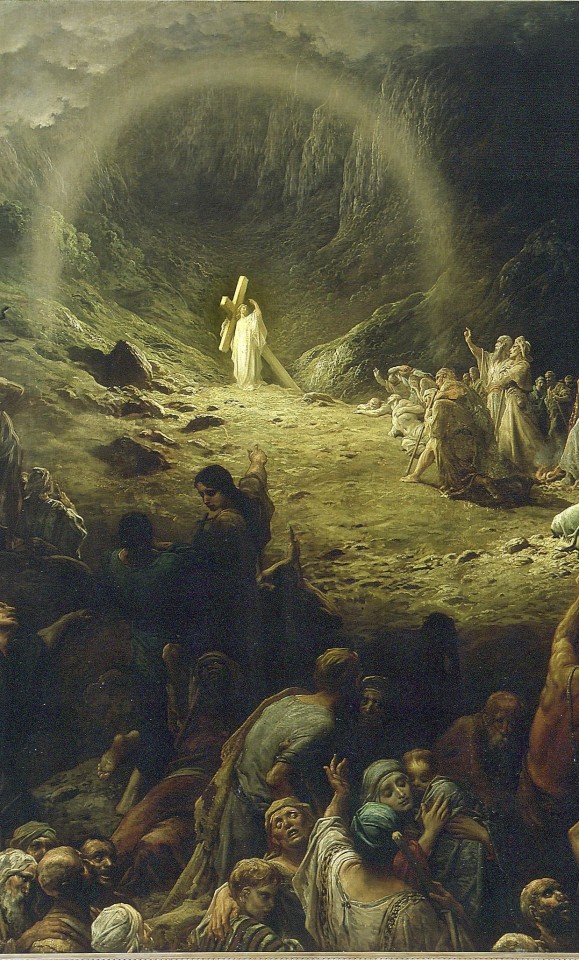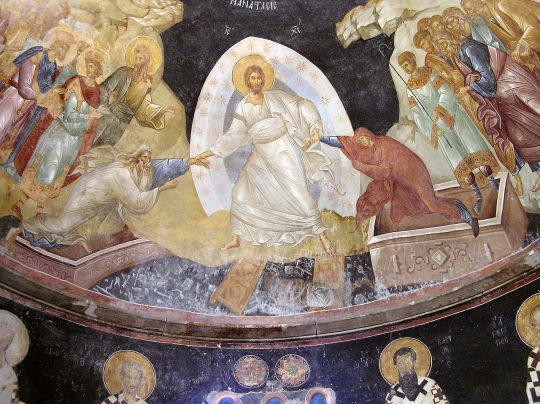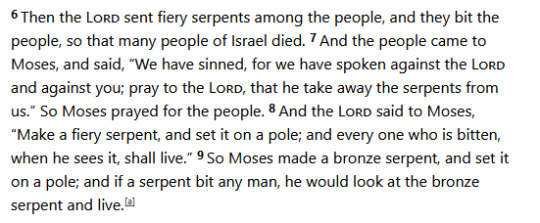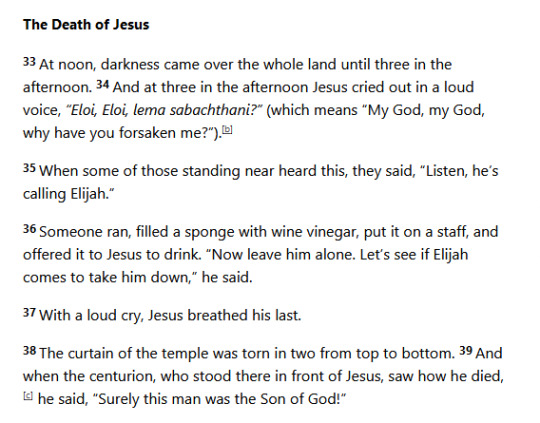I write about Christian topics hoping to find the Truth. Missionary kid raised Baptist. I believe that the Bible is true and truth is knowable.
Last active 2 hours ago
Don't wanna be here? Send us removal request.
Text
Let’s talk about the long and often overlooked history of Christian protest — because it didn’t start in the 1960s, and it definitely didn’t end there either.
It begins with Jesus.
Jesus didn’t just preach love—he practiced resistance. Not passive submission, but a deep, active nonviolence that challenged empire, religious hypocrisy, and social injustice.
He refused to meet violence with violence.
He flipped tables, not people.
He told his followers to turn the other cheek—not out of weakness, but as a form of nonviolent confrontation that exposed injustice.
When facing Pilate, he said: “My kingdom is not of this world”—a political statement rejecting the authority of empire, while refusing to stoop to its tools.
161 notes
·
View notes
Text
One of the great tragedies of Christianity this past millennium is that it has been boiled down to "what needs to happen for me to go to heaven, and how do I avoid hell."
12 notes
·
View notes
Text
I'm obsessed with the way different architectural styles reflect different aspects of God.
Like, gothic? The spires and the stained glass and the pointed arches? The gargoyles on the outside of churches, signifying that the demons can't enter into a sacred space? It's grand, almost foreboding. It sings in the piercing, ethereal song of the dryads of old, "He is not safe, but He is good."

And then there is romanesque, and it is God as fortress, God as bulwark. Round arches, heavy stones. Sturdy, safety, support. It sings in low Gregorian chant, "God is my strong tower, my refuge."

And then there is Baroque. And your breath stalls in your throat, and your heart does something strange because, oh—oh this must be what heaven looks like. It's dazzling, marvelous, almost a dream. And its song is not in words because there are no words to express it except "Sanctus, sanctus, sanctus." But its chorus is celestial all the same. It is God as Divine Beauty, the source from which all beauty flows.



813 notes
·
View notes
Text
Not to start anything but I have a question for fellow Christians:
What is your opinion on Reformed Theology?
I want your opinions, not a thesis defense please. I’m not asking to be persuaded, I just wanna hear what you all think :)
160 notes
·
View notes
Text
i'm trying to make a little bible study handout about atonement theories and it's interesting how many websites about penal substitutionary atonement are like 'this verse obviously supports PSA' but it's like.
all it does is support an idea of Jesus as a sacrifice for sin. which is like the core of any atonement theory.
im not even anti PSA but i feel like it is mostly predicated on isaiah 53, OT sacrificial animals esp the day of atonement, and a kind of logical reasoning of 'God is just and merciful'. it is not that evident in a lot of NT passages
30 notes
·
View notes
Text
An Easter Sermon from St. John Chrysostom
Is there anyone who is a devout lover of God? Let them enjoy this beautiful bright festival! Is there anyone who is a grateful servant? Let them rejoice and enter into the joy of their Lord!
Are there any weary with fasting? Let them now receive their wages! If any have toiled from the first hour, let them receive their due reward; If any have come after the third hour, let him with gratitude join in the Feast! And he that arrived after the sixth hour, let him not doubt; for he too shall sustain no loss. And if any delayed until the ninth hour, let him not hesitate; but let him come too. And he who arrived only at the eleventh hour, let him not be afraid by reason of his delay.
For the Lord is gracious and receives the last even as the first. He gives rest to him that comes at the eleventh hour, as well as to him that toiled from the first. To this one He gives, and upon another He bestows. He accepts the works as He greets the endeavor. The deed He honors and the intention He commends.
Let us all enter into the joy of the Lord! First and last alike receive your reward; rich and poor, rejoice together! Sober and slothful, celebrate the day!
You that have kept the fast, and you that have not, rejoice today for the Table is richly laden! Feast royally on it, the calf is a fatted one. Let no one go away hungry. Partake, all, of the cup of faith. Enjoy all the riches of His goodness!
Let no one grieve at his poverty, for the universal kingdom has been revealed. Let no one mourn that he has fallen again and again; for forgiveness has risen from the grave. Let no one fear death, for the Death of our Savior has set us free. He has destroyed it by enduring it.
He destroyed Hades when He descended into it. He put it into an uproar even as it tasted of His flesh. Isaias foretold this when he said, "You, O Hell, have been troubled by encountering Him below."
Hell was in an uproar because it was done away with. It was in an uproar because it is mocked. It was in an uproar, for it is destroyed. It is in an uproar, for it is annihilated. It is in an uproar, for it is now made captive. Hell took a body, and discovered God. It took earth, and encountered Heaven. It took what it saw, and was overcome by what it did not see. O death, where is thy sting? O Hades, where is thy victory?
Christ is Risen, and you, O death, are annihilated! Christ is Risen, and the evil ones are cast down! Christ is Risen, and the angels rejoice! Christ is Risen, and life is liberated! Christ is Risen, and the tomb is emptied of its dead; for Christ having risen from the dead, is become the first-fruits of those who have fallen asleep.
To Him be Glory and Power forever and ever. Amen!
90 notes
·
View notes
Text
youtube
Aslan being voiced by a woman is fine I don't really care
- sincerely, a Christian.
89 notes
·
View notes
Text
I hate that I was right about the OP of the post about Gethsemane and the olives and Jesus. She’s a member of the LDS church and isn’t Christian. Pray for her salvation.
What gave it away was her saying Christ’s blood anoints us to save us and makes us something greater than we could ever be on our own, and her comment on Jesus’ suffering in our stead in Gethsemane instead of on the Cross.
The LDS church teaches that, after our death, if we believe in God and follow his laws, we are made like God instead of given new life and given new bodies but remain, in fact, humans created in God’s image, not intended to become gods ourselves.
The LDS church also teaches that the atonement for our sins happened in Gethsemane instead of on the cross, as the Scriptures teach. Atonement for sins, as taught in Scripture, can only happen through the death of a perfect substitute, as seen with the Passover lamb. Jesus fulfilled the requirement of being a perfect substitute to die for the penalty of our sins in our place.
I understand it may seem like I am harping on these differences unnecessarily, on the day we observe and celebrate Jesus’ death. But these things matter. They especially matter today. It is a matter of salvation that we recognize why Christ died and why we have hope of everlasting life in him alone.
Christ did not just suffer in our place. He died in our place. Because the wages of sin is death; not just physical death, but spiritual death and eternal separation from our Creator. Jesus suffered separation from God and died so that we, believing in him, may live.
And, in three day, he rose again, becoming the first born of the Resurrection and defeating sin and death.
This is our hope.
The OP of the Gethsemane post had a lot of good things to say, and made a lot of fascinating connections, and I acknowledge that and appreciate it. But on this, I cannot stay silent. We will never be anything greater than glorified humans in the resurrection, and the atonement of our sins is only possible because of Jesus’ death.
God bless, my friends.
225 notes
·
View notes
Text

Last tweet from Pope Francis.
Anyway. This is all I’m really gonna say about it. I’ve been mourning all day but it’s over and the wind blows where it pleases etc etc. Let us remember this: Christ has conquered death by death. Our hope is in him, not in any human man. He will shelter his beloved children (no matter how old) under his wings, and he will cast every tyrant into the sea. Inshallah and amen.
64 notes
·
View notes
Text


O death, I will be thy death; O hell, I will be thy bite
Vale of Tears by Gustave Doré (1883)
3K notes
·
View notes
Text

From an ancient homily for Holy Saturday:
The Lord's Descent Into The Underworld (attributed to Saint Epiphanius of Salamis) Something strange is happening - there is a great silence on earth today, a great silence and stillness. The whole earth keeps silence because the King is asleep. The earth trembled and is still because God has fallen asleep in the flesh and He has raised up all who have slept ever since the world began. God has died in the flesh and Hell trembles with fear. He has gone to search for our first parent, as for a lost sheep. Greatly desiring to visit those who live in darkness and in the shadow of death, He has gone to free from sorrow the captives Adam and Eve, He who is both God and the Son of Eve. The Lord approached them bearing the Cross, the weapon that had won Him the victory. At the sight of Him Adam, the first man He had created, struck his breast in terror and cried out to everyone, “My Lord be with you all.” Christ answered him, “And with your spirit.” He took him by the hand and raised him up, saying, “Awake, O sleeper, and rise from the dead, and Christ will give you light. “I am your God, who for your sake have become your son. Out of love for you and for your descendants I now by My own authority command all who are held in bondage to come forth, all who are in darkness to be enlightened, all who are sleeping to arise. I order you, O sleeper, to awake. I did not create you to be held a prisoner in Hell. Rise from the dead, for I am the Life of the dead. Rise up, work of My hands, you who were created in My image. Rise, let us leave this place, for you are in Me and I am in you; together we form only one person and we cannot be separated. “For your sake I, your God, became your son; I, the Lord, took the form of a slave; I, whose home is above the heavens, descended to the earth and beneath the earth. For your sake, for the sake of man, I became like a man without help, free among the dead. For the sake of you, who left a garden, I was betrayed to the Jews in a garden, and I was crucified in a garden. “See on my face the spittle I received in order to restore to you the life I once breathed into you. See there the marks of the blows I received in order to refashion your warped nature in My image. On My back see the marks of the scourging I endured to remove the burden of sin that weighs upon your back. See My hands, nailed firmly to a tree, for you who once wickedly stretched out your hand to a tree. “I slept on the Cross and a sword pierced My side for you who slept in Paradise and brought forth Eve from your side. My side has healed the pain in yours. My sleep will rouse you from your sleep in Hell. The sword that pierced Me has sheathed the sword that was turned against you. “Rise, let us leave this place. The enemy led you out of the earthly Paradise. I will not restore you to that Paradise, but I will enthrone you in Heaven. I forbade you the tree that was only a symbol of life, but see, I who am Life itself am now one with you. I appointed cherubim to guard you as slaves are guarded, but now I make them worship you as God. The throne formed by cherubim awaits you, its bearers swift and eager. The Bridal Chamber is adorned, the banquet is ready, the eternal dwelling places are prepared, the treasure houses of all good things lie open. The Kingdom of Heaven has been prepared for you from all eternity."
66 notes
·
View notes
Text





Oh Your love bled for me Oh Your blood in crimson streams Oh Your death is hell's defeat A cross meant to kill is my victory.





Is this how it is? Is this how it's always been? To exist in the face of suffering and death And somehow still keep singing Oh like Christ up on a cross Who died for us? Who died for what? Oh, don't you wanna call it off? But there's nothing else that I know how to do But to open up my arms and give it all to you



How could anything bad ever happen to you? You make a fool of death with your beauty---

and for a moment I forget to worry

Numbers 21:6-9 // Mark 15: 33-39 // My Victory, by Hillsong // Exodus 12:11-13, 12:5-7 // Free, by Florence and the Machine // St. Thomas Aquinas is Right: The Crucifixion Should Disturb You, by Shaun McAfee // Hunger, by Florence and the Machine //
115 notes
·
View notes
Text
86K notes
·
View notes
Text
More than 2000 years of desperate coping and seething from apologists and theologians and they still have not actually resolved the Epicurean Paradox
26K notes
·
View notes











